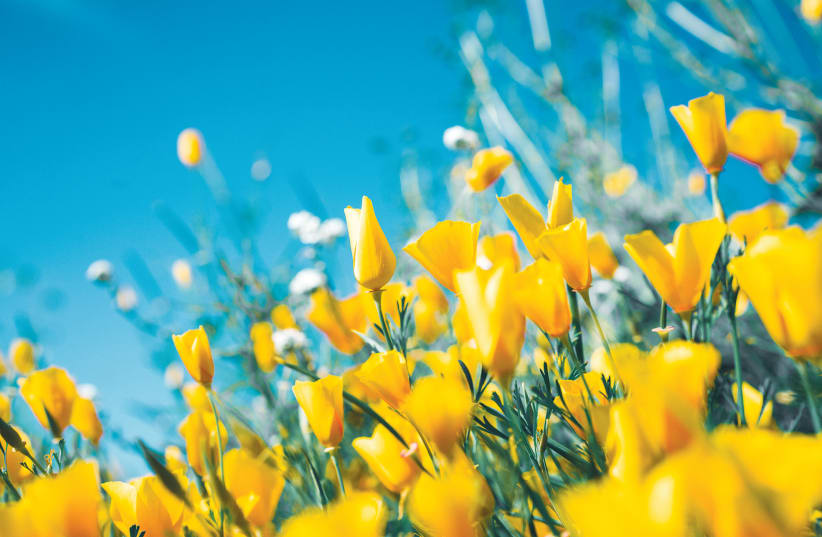Is the Kiryat Hayovel community pub again at the center of a haredi-secular war?
According to haredi representatives at city council, the pub’s owners have performed illegal renovations in the compound of the community center in which the it is located. The pub is a community initiative and it is managed by neighborhood residents, who insist that the renovations were done in a part of the pub structure which wasn’t used for a while, and therefore – totally legal.
Residents active in maintenance of the pub say the haredim never gave up the plan to close the spot, which is open on Shabbat, and express concern that following the recent local elections, the campaign will gain new steam.
On the ground, what happened is that due to the snow last winter, the tent that served as a shelter for the pub was crushed and management decided to renovate the back room to replace the tent and offer a covered space for customers. The business permits administration at Safra Square recently looked into the matter – following a request to do so by haredi city council members – and found that aside from replacing the collapsed tent, some renovation work had also been done. The administration still hasn’t concluded if the renovations deviated from the permit.
Kiryat Hayovel activists opposed to what they call a haredi attempt to change the nature of the neighborhood are convinced this is just another round in that struggle and pledge not to give up.
Thought and learning
New year, time for new studies: the Menachem Begin Heritage Center is partnering with the Academy of Jewish Thought & Learning in South Africa to present an eight-part course, exploring the writings and lives of eight great Zionist leaders, thinkers and writers. Each one of the eight figures appeals to a different part of the Jewish world, each of them considered as a visionary whose outlooks went way beyond the ordinary and left their mark on Jewish and Zionist thought far into the future.
The Begin Center offers the first three sessions as samples, free of charge, prior to registration for the entire series. It starts this week. More details: /bit.ly/3ztcYvN
A wall of flowers
Jerusalem of course has the ancient Western Wall, and now it has a flower wall at the western entrance to the city. Following three years of renovations and planting, the entranceway from the Sakharov Gardens to the Givat Shaul junction and the Chords Bridge has a dramatic new look, aesthetically given a boost by an array of new plants and flowers.
It took three-and-a-half years and NIS 330 million, but the entire ambience of the city entrance looks different, and for the better. Highway One has been widened with more space exclusively for public transportation, and now the area has been adorned with a lavender, geranium, rosemary and mint flower wall, alongside the work to complete the city entrance project that is transforming the capital’s landscape.
Not for me
The municipal education administration (Manhi) has managed to open the school year despite all the problems posed by the coronavirus. Yet for now at least, no solution has been found to the challenge posed by the significant number of educational staff who refuse to take the vaccine.
As of last week, the exact number of staff who fall in the category of those who refuse to take the shot or have recovered after contracting the virus was unknown. According to a reliable source at Safra Square, however, it seems that close to 20% of school teachers, as well as preschool teachers and assistants in kindergartens, fall in these categories and their numbers reach about 6,000 out of the some 30,500 educational staff in the city’s publicly recognized institutions.
According to Health Ministry guidelines, educational staff must have a Green Tag, meaning that they’ve been fully inoculated or recovered from the virus.
No money, no honey
There is a significant increase in Jerusalemites who need help in celebrating the High Holy Days.
According to several city charity organizations, there has been a spike in the number of families requesting food baskets and other assistance amid the pandemic. “People lost their jobs, or cannot work because they became sick with the coronavirus, and hence there has been an ongoing growth in the number of families applying to our organizations,” says Avraham, who runs a weekly food-basket distribution operation in one of the haredi neighborhoods. His organization has been supporting families from the haredi and secular sectors alike, but this past year, he says, the number of non-haredim who have applied has doubled.
According to the city social welfare administration, thousands of local families have indeed recently applied to aid organizations around Jerusalem for help, especially as the High Holy Days approach. The government recently approved a special budget of NIS 100 million for this purpose – across the country – but the money is not reaching all the charity associations and some of them cannot grapple with the avalanche of requests.
The distribution of food baskets, clothing for the holidays and more is carried out in the capital in coordination with the municipality’s welfare administration, but as Avraham says, “How can I refuse to help a woman with children who needs help and is not registered with the authorities?” The municipality lends some support to these charity associations, but most of their income comes from large donations abroad, which have shrunk during the pandemic.
